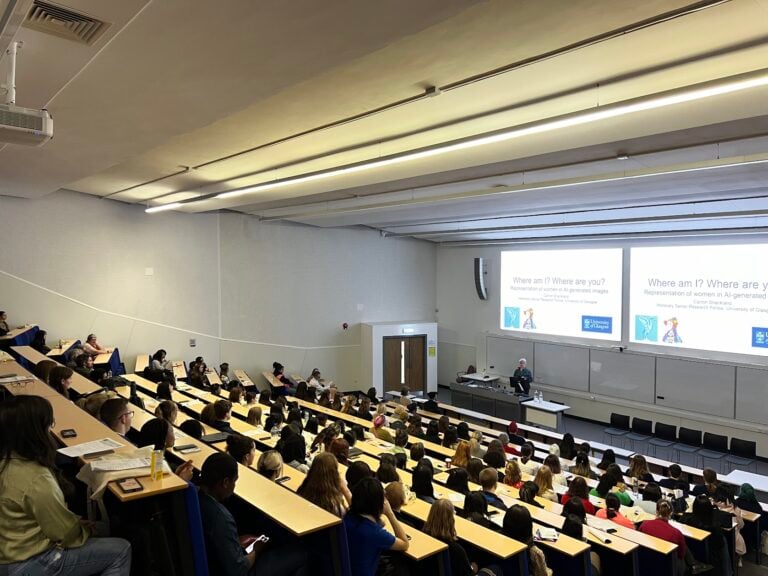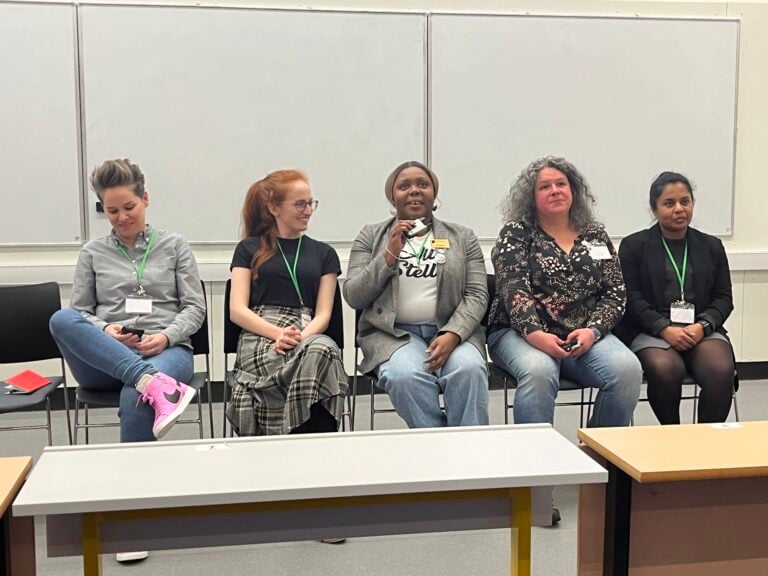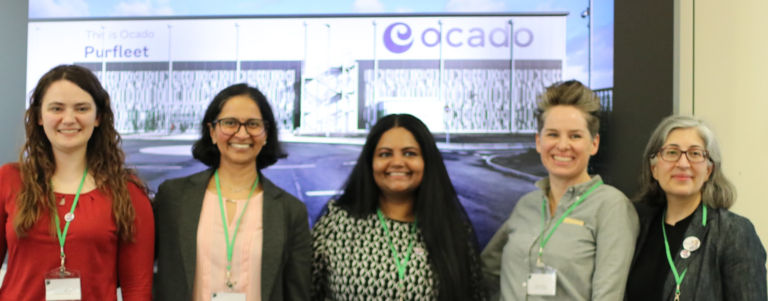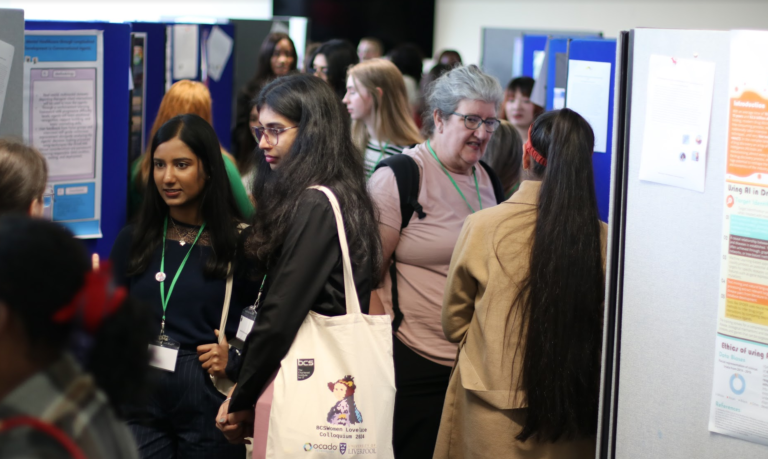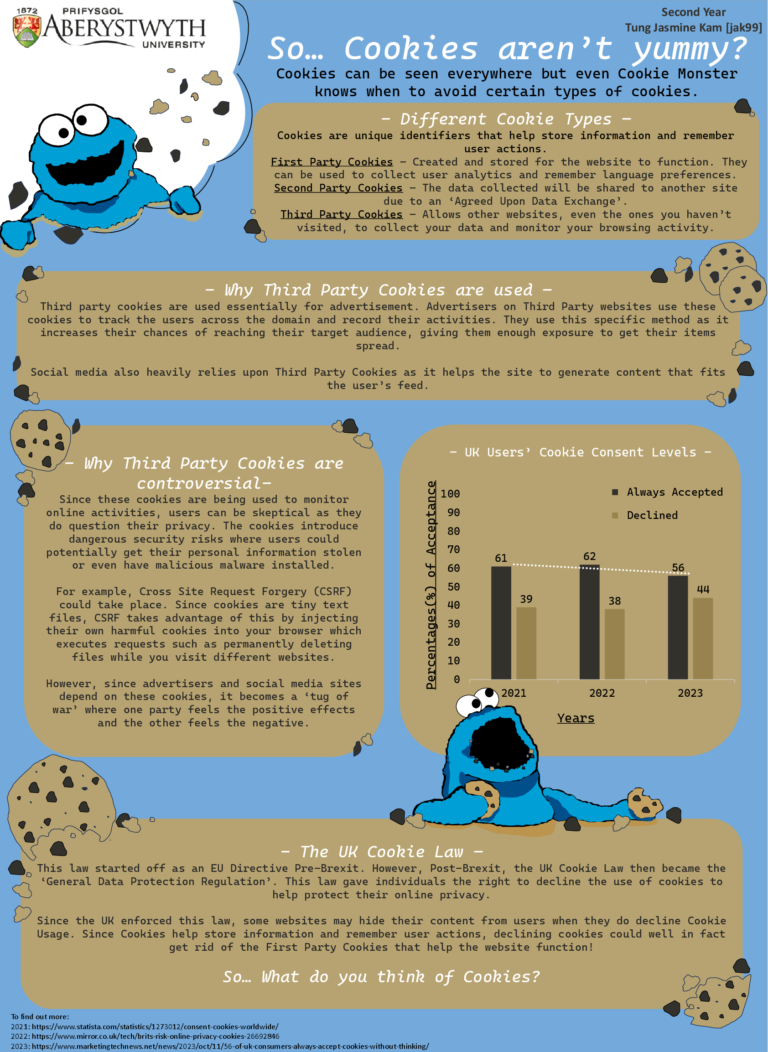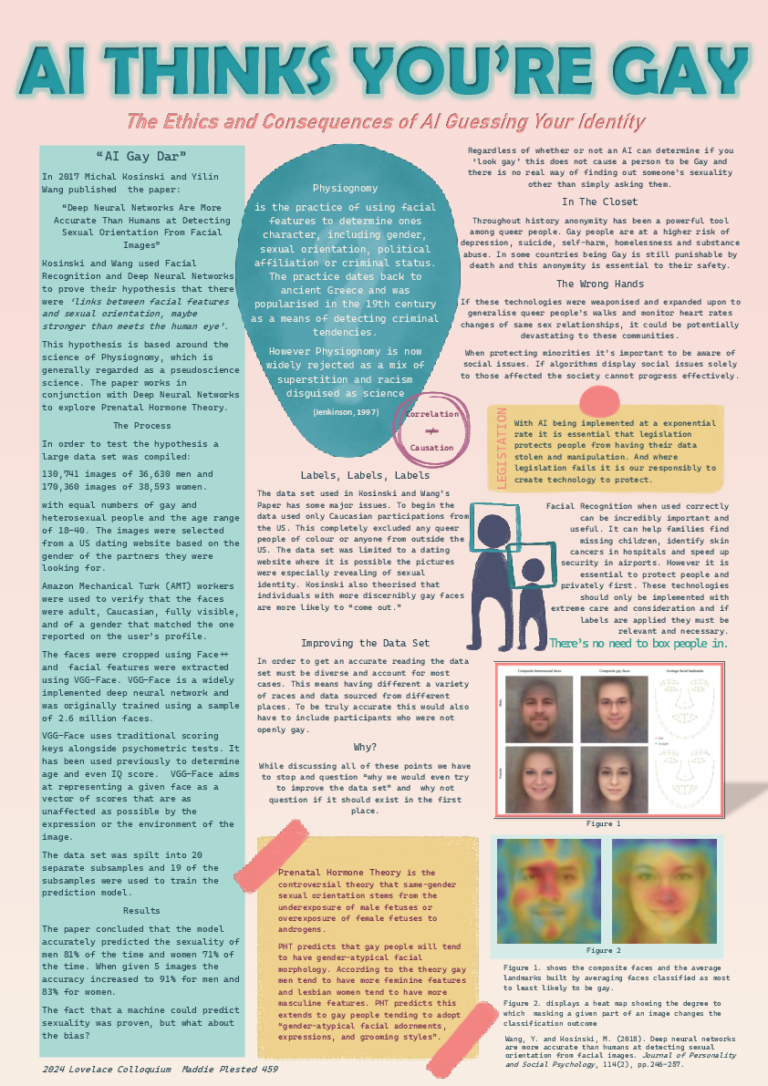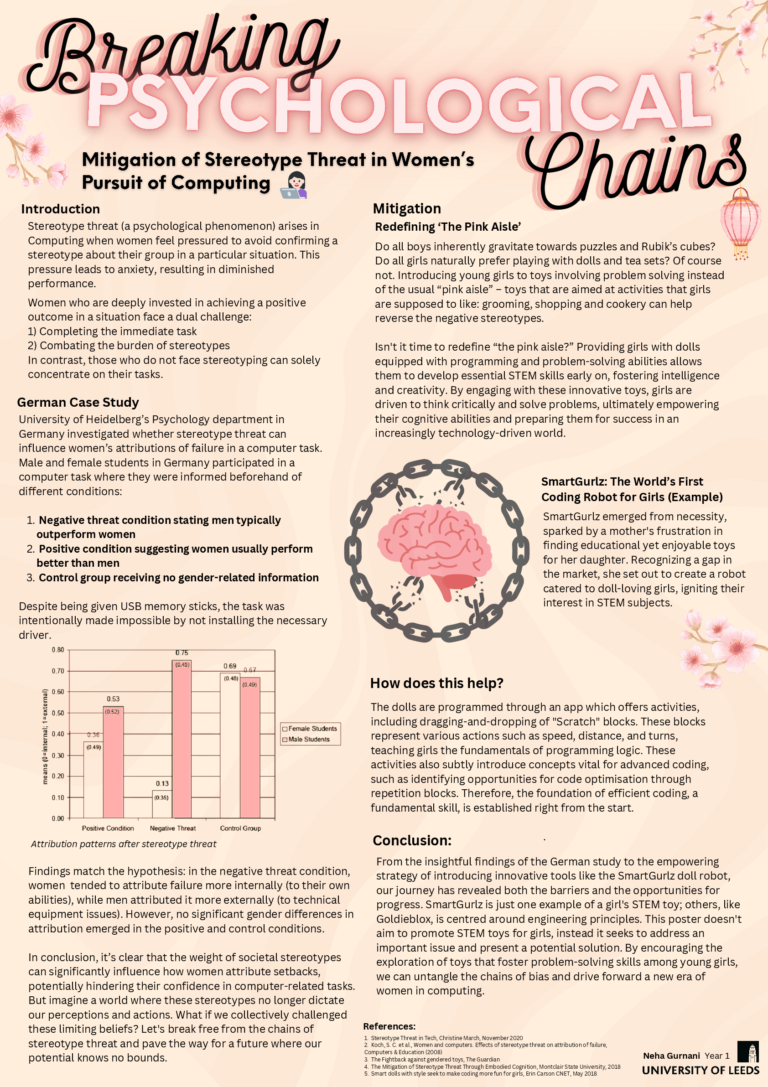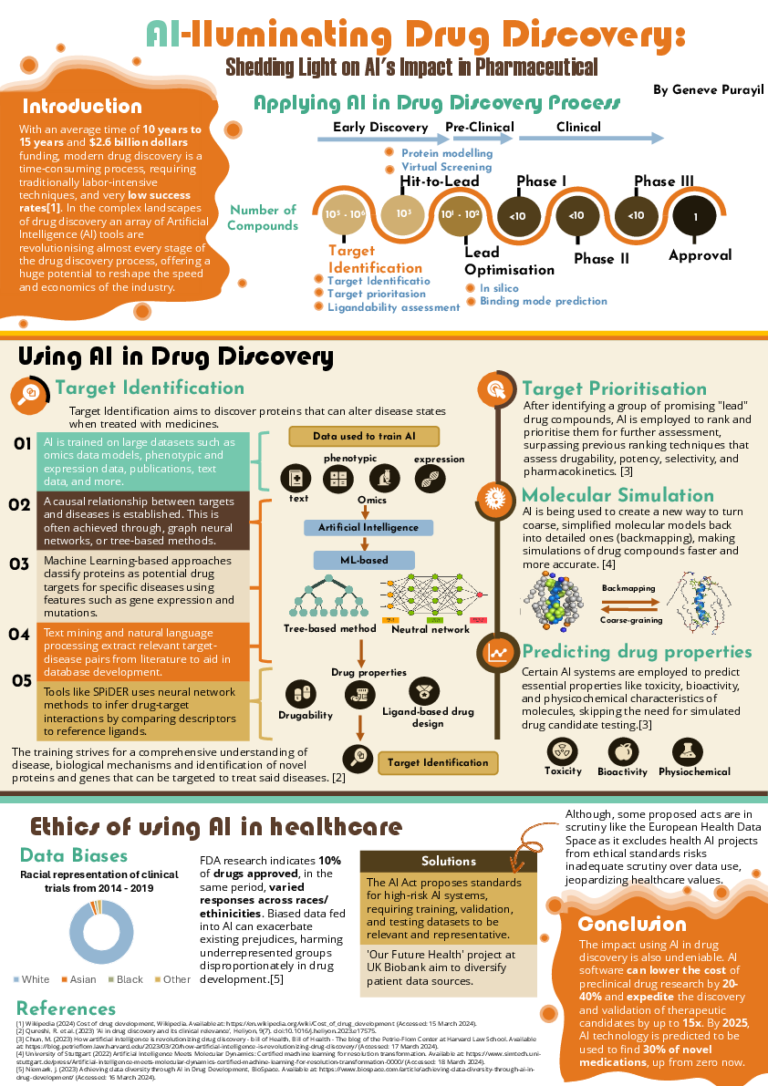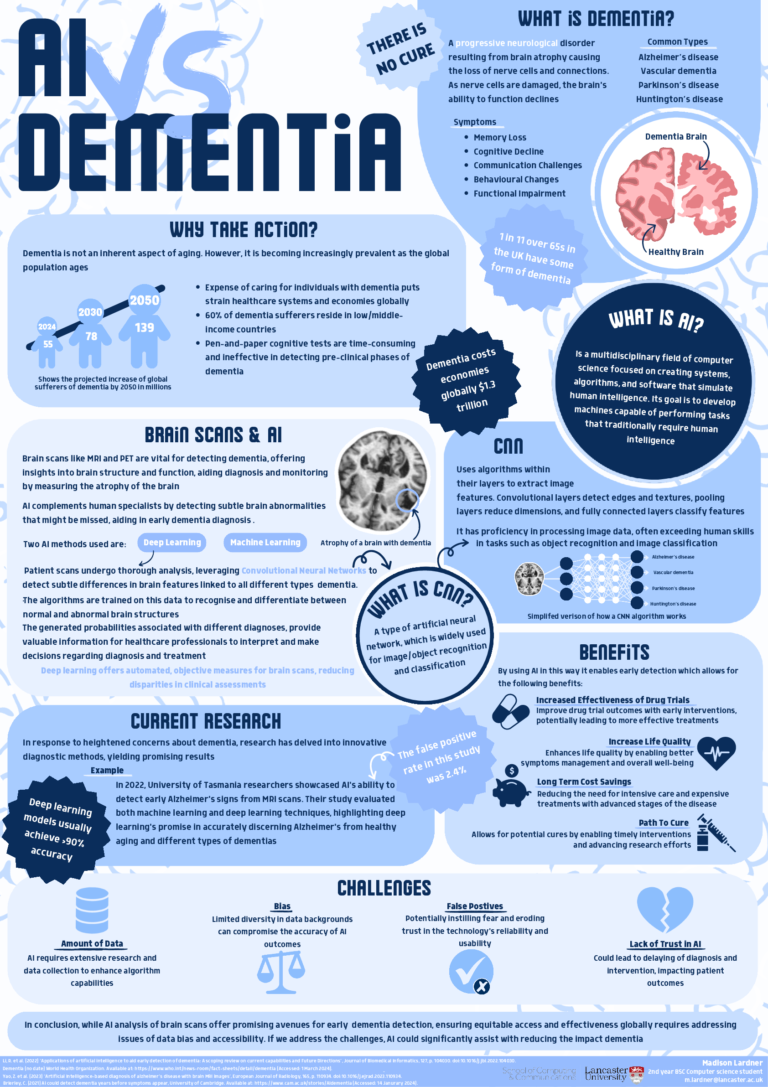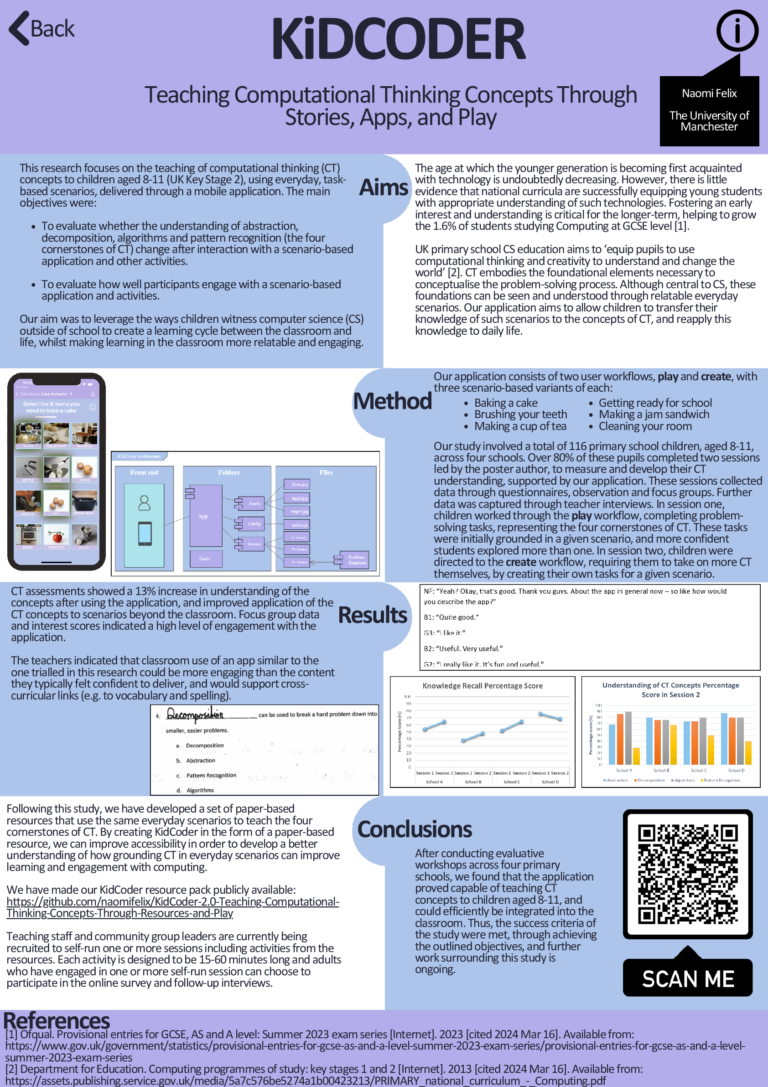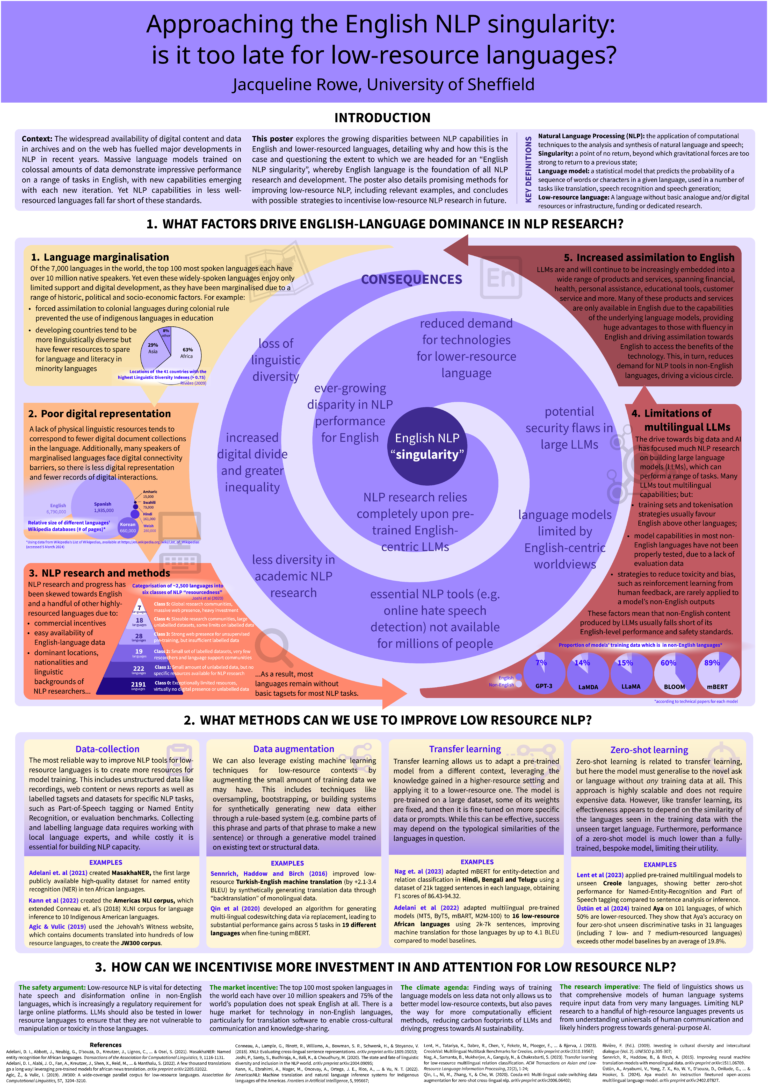The 17th BCSWomen Lovelace Colloquium was held at the University of Liverpool on April 4th 2024. We had about 300 registered attendees, with over 150 poster presenters.
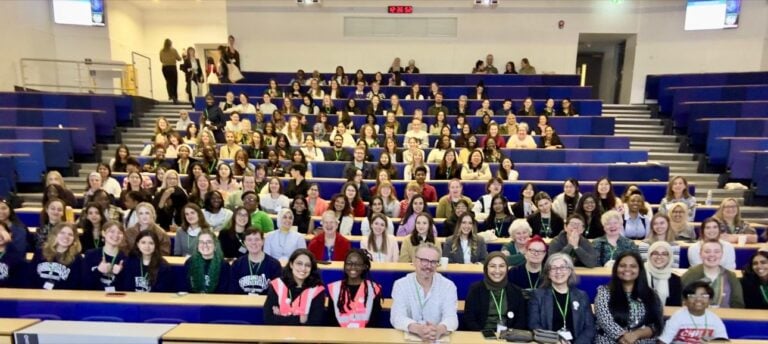
Group shot of the day (of those who wanted to be in photos, also getting everyone in one place is like herding cats)
We have a number of other reports on the day, and will collect news reports and blogs here:
- https://medium.com/@madeleinelangdonmorris/markov-random-fields-can-probabilistic-graph-models-predict-your-future-818ea585d821 Maddy Langdon-Morris’s blog on the day
- https://www.hannahdee.wales/blog/?p=1940 Hannah Dee’s blog on the day
- https://www.sheffield.ac.uk/dcs/postgraduate/student-profiles/jacquie Jacquie Rowe’s report on the day on the Sheffield Computer Science site
- https://blogs.napier.ac.uk/womenintotech/2024/04/25/bcswomen-lovelace-colloquium-2024/ A blog from Clara O’Callaghan and Alyanna Posadas of Napier University
- https://www.aber.ac.uk/en/news/archive/2024/04/title-270584-en.html An article about our People’s Choice prize winner, from Aberystwyth University. (Same article in Welsh here.)
- https://www.kcl.ac.uk/the-lovelace-colloquium-in-liverpool-celebrating-women-and-non-binary-individuals-in-computer-science An article by students from Kings College London about their experiences on the day
You can find the programme and abstract book here: BCSWomen_Lovelace_Colloquium_24_abstract_book
which contains all the accepted student abstracts.
The local chair was Munira Raja from the University of Liverpool, event chair Safia Barikzai from London South Bank University, and deputy Hannah Dee from Aberystwyth University. We were ably assisted in our endeavours by Amanda Clare and Edel Sherratt of Aberystwyth University, and Matthew Barr of the University of Glasgow. Jon Jeffery of the BCS has been a massive help again, looking after the front desk on the day and dealing with our many many emails and teams calls in the run up.
Talks:
We had a keynote speaker, and four short talks. As ever we aimed for variety – some industry, some academia, some careers talks. We hope every attendee found something of value in at least one of them!
- Keynote speaker: Prof Carron Shankland, University of Glasgow, “Where am I? Where are you? Representation of women in AI-generated images”
- Tafline James-Willam, Ocado Technology “Robotics Simulation at Ocado Technology”
- Jen Fenner, DefProc “IoT in Action: Scaling Solutions with Intelligent Sensors and Real-Time Data Utilisation”
- Taps Mtutu, SEO London “Personal Branding”
- Dr Gabriella Pizzuto, University of Liverpool “Creating the Next Generation of Intelligent Robotic Systems”
Panel:
For the panel discussion, we had
- Claire Knights (Recently BCA, but currently on a sabbatical)
- Laura Cumming (Ocado Technology)
- Praboda Rajapaksha (Aberystwyth University)
- Nicola Martin (Adarga & BCSWomen)
- Hannah Grimes (P&G)
Stallholders and sponsors:
- Ocado Technology (Gold)
- Turing Institute (Silver)
- P&G (Bronze)
- RS Components (Bronze)
- OpenBright (Bronze)
- STFC (Prize sponsor)
- Oxford University’s AIMS CDT (Prize sponsor)
- JP Morgan Chase (Prize sponsor)
- SEO London
- University opportunities: Bath, Liverpool, LSBU, Aberystwyth promoting MSc and PhD places.
Additionally there were a lot of institutions providing University support by financially contributing to the event, or by covering the travel of their own students. Our pledge to support student travel if at all possible is a good one but as the conference grows, this becomes a challenge! We had over 150 students from around the UK presenting, which is a lot of travel.
Prizes:
People’s choice
Jasmine Kam of Aberystwyth University for So… Cookies aren’t yummy?
First year or foundation year contest:
1st prize: Maddie Plested of University of Bath for “AI Thinks You’re Gay”: The Ethics and Consequences of AI Guessing Your Identity
2nd prize: Neha Gurnani of University of Leeds for Mitigation of Stereotype Threat and Women’s Pursuit of Computing
Honorable mentions:
- Emily Bayston University of Derby AR Rescue: Revolutionising Disaster Management
- Madeleine Langdon-Morris Durham University Can Markov Random Fields predict your future?
- Priscilla Fatokun University of Warwick Cracking the Diversity Code: Understanding Technology’s Blind Spots Towards Black People
Second year (including people on an industrial year, or in the third year of a four year BSc degree)
1st prize: Geneve Purayil of Cardiff University for AI-lluminating Drug Discovery: Shedding Light on AI’s Impact in Pharma
2nd prize: Madison Lardner of Lancaster University for AI Vs Dementia
Honorable mentions
- Mariia Slobodianiuk Durham University From Movement to Melody: Generating Music with Neural Networks from Dance
- Lara Tatli Durham University Beyond Classical Algorithms: The Potential of Quantum PageRank and its Applications
- Isabella Mullings Wong University of Bath Reduce, reuse, refactor: Do you know the carbon footprint of your code?
Final year (including people in their penultimate year of an integrated MEng or MComp degree)
1st prize: Allaida Siow of Durham University for Empowering Women’s Choices: Harnessing Wearable Tech for Informed Menopause Management
2nd prize: Kara Quast of University of Stirling for Reducing the Computational Burden of Multi-AGV Collision Avoidance
Honorable mentions
- Charlie Leong King’s College London Robotic Manipulation for Assisting Individuals with Mobility Impairments in Household Tasks
- Yourong Chen University of Liverpool Conversational Slot Induction Using Natural Language Processing Techniques
- Laura Schofield Manchester Metropolitan University Enhancing Patient Well-Being: The Impact of Improved Communication on Happiness
MSc (including people in the final year of an integrated MEng or MComp)
1st prize: Naomi Felix of University of Manchester for KidCoder: Teaching Computational Thinking Concepts Through Stories, Apps, and Play
2nd prize: Jacqueline Rowe of University of Sheffield for Approaching the English NLP singularity: is it too late for low-resource languages?
Honorable mentions
- Sukurat Salam Teesside University Optimizing the performance of risk prediction model for diabetes using ensemble techniques
- Sakshi Saraff University of Bristol Insect Inspired Reverse Pheromone Signalling for Traffic Optimisation
- Lucy Porte UCL Extracting quantitative methods from biomedical research papers using Generative AI
Images of the winning posters
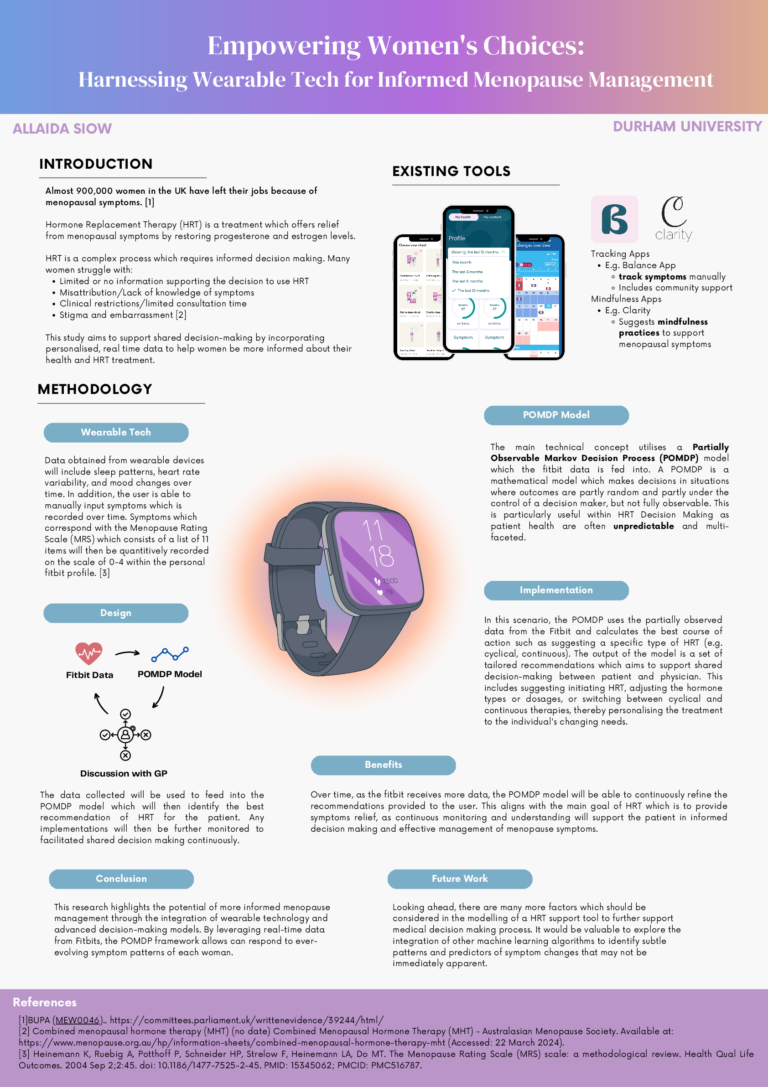
Empowering Women’s Choices: harnessing wearable tech for informed menopause management by Allaida Siow of Durham University
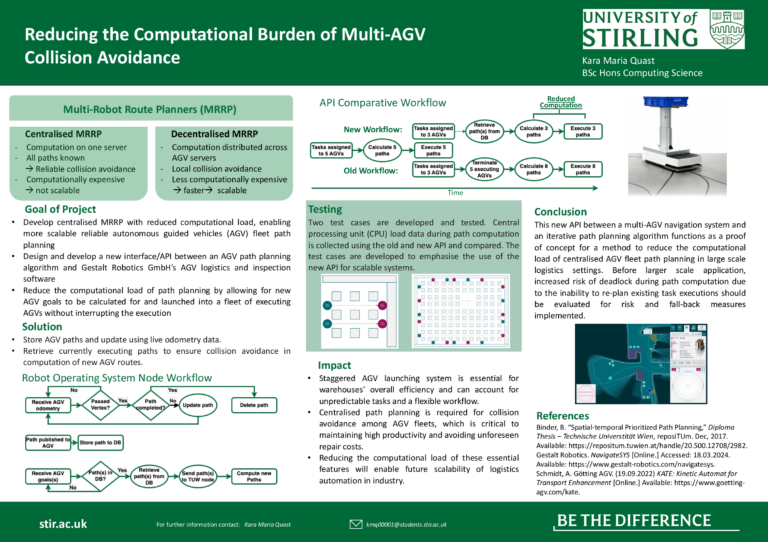
Reducing the Computational Burden of Multi-AGV Collision Avoidance by Kara Quast of the University of Stirling
